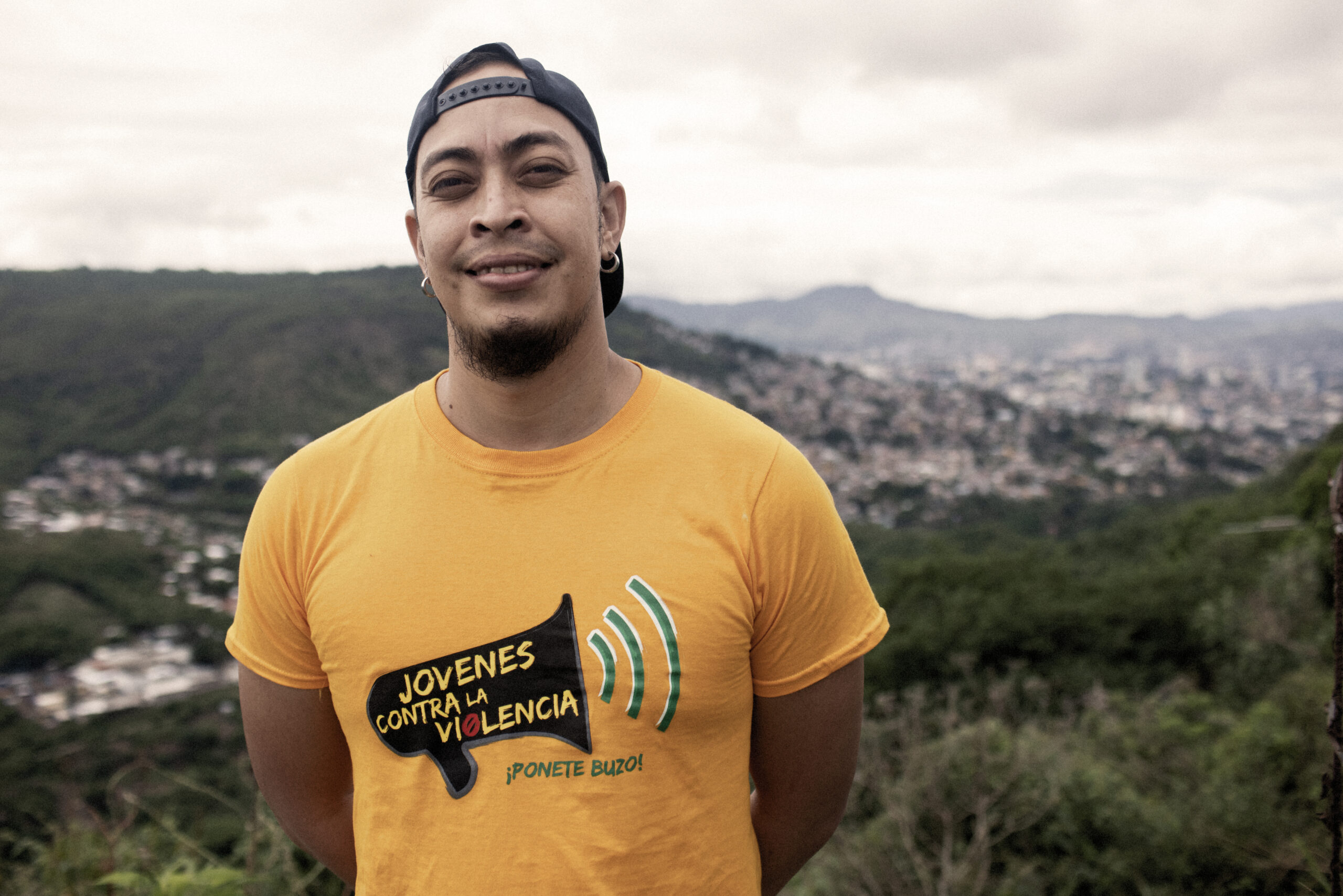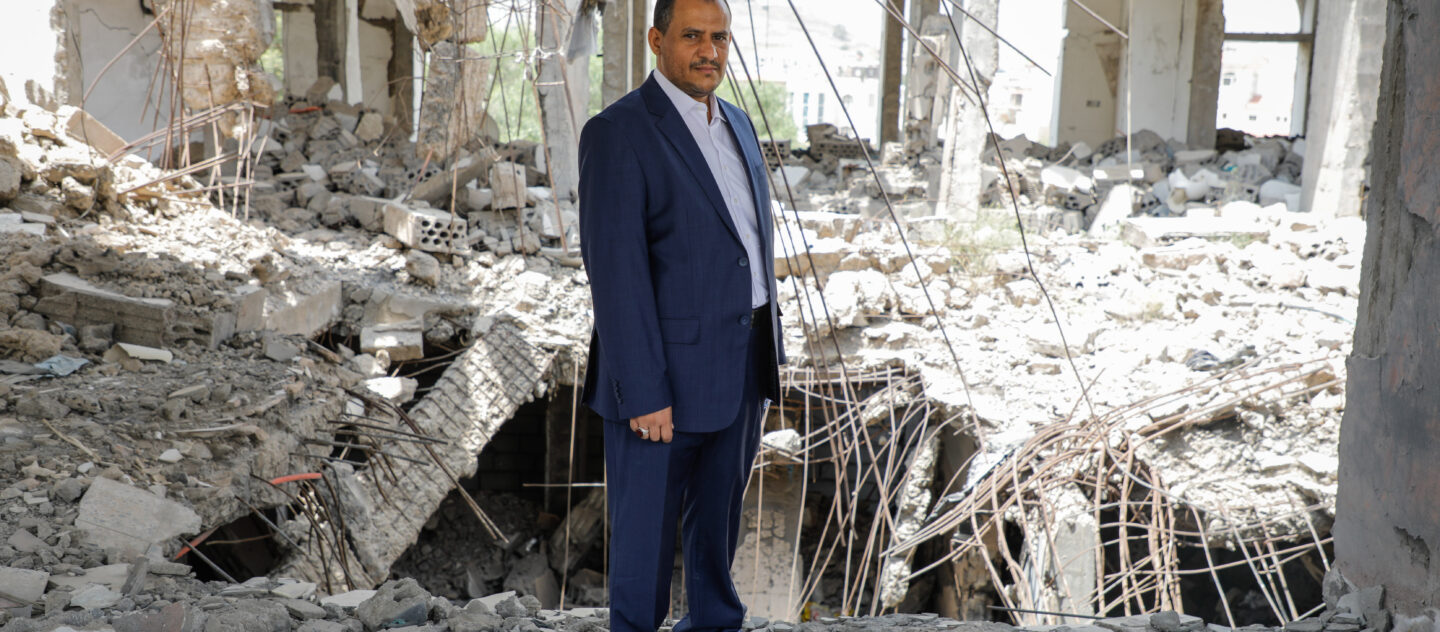We are delighted to announce that this year’s Laureate is Jeel Albena Association for Humanitarian Development (JAAHD), a humanitarian organization which provides emergency services to internally displaced people in northern Yemen. Founded by Ameen Jubran in 2017, the organization has constructed 18,000 shelters for internally displaced people and their host communities. It has also provided cash assistance to some 60,000 people and helped thousands of others through its skills-building center and school rehabilitation programme.
Jubran was himself displaced by the conflict in Yemen in 2015. Three years later, he was nearly killed in fighting while working for his organization. Yet Jubran and his colleagues have stayed throughout the conflict to deliver lifesaving aid to those who need it most. The perseverance, humanitarian spirit and commitment to people forced to flee their homes makes Jeel Albena a worthy Laureate of the UNHCR Nansen Refugee Award.
What is happening in Yemen?
Yemen is already one of the poorest countries in the Middle East and fighting has added to the existing problems of poverty and insecurity. The worsening violence means that more than 20 million people are now in need of humanitarian assistance.
– More than 20 million people are now in need of humanitarian assistance
– More than 4 million people have been forced to flee their homes, living in substandard shelters
– Yemenis who have been forced to flee their homes are four times more at risk of famine than the rest of the population
Yemen is facing a humanitarian catastrophe. Without help, many more lives will be lost to violence, treatable illnesses or lack of food, water and shelter. You can provide direct help to Yemenis who are suffering—please donate now.
MEET THE 2021 UNHCR NANSEN REFUGEE AWARD REGIONAL WINNERS
We are honoured to announce the Regional Winners of the 2021 UNHCR Nansen Refugee Award, each selected from hundreds of nominees for their outstanding work with refugees as well as displaced and stateless people.

ASIA REGIONAL WINNER: Dr Saleema Rehman
Doctor Saleema Rehman is an obstetrician and gynecologist living and working in Pakistan. Dr Rehman is an Afghan refugee and overcame significant struggles to gain the support of her community to pursue her dreams of becoming a doctor.
After years of hard work and lobbying for funding, Dr Rehman opened a private practice in Attock, which enables refugees and people from low income backgrounds to access affordable medical care.

AFRICA REGIONAL JOINT WINNERS: Roukiatou Maiga and Diambendi Madiega
Roukiatou Maiga is the President of the Women’s Association Djam Weli, based in Burkina Faso. Maiga advocates strongly for the rights of internally displaced people (IDPs) and has shown great hospitality and generosity to those forcibly displaced in Dori in the Sahel region.
Diambendi Madiega is a small-scale farmer and practitioner of traditional medicine in Kaya, Burkino Faso. He also spends time advocating for the rights of IDPs and has opened his heart and property in the Center-North region.

AMERICAS REGIONAL WINNER: Jorge Santiago Ávila Corrales
After the murder of his younger brother, Santiago Ávila and his family had to seek safety in another region of Honduras. Santiago has since made it his mission to save other families from the same fate.
Ávila opted to return to Honduras to start Jóvenes Contra la Violencia, which over the past 10 years has worked with children and young people at risk of being pulled into gangs or who have already fled gang related violence.

EUROPE REGIONAL WINNER: Nikola Kovačević
Nikola Kovačević has represented almost 30 per cent of the asylum-seekers who have been granted protection in Serbia. He has been actively engaged in the protection of human and refugee rights, individual asylum-seekers and refugees since 2012. His work has contributed towards key improvements in asylum procedures in Serbia which, in turn, has increased the number of refugees being granted international protection there.
Background
Formerly known as the Nansen Medal, this award is named after the late Norwegian arctic explorer Fridtjof Nansen, who was appointed by the League of Nations, predecessor of the United Nations, to be the very first High Commissioner for Refugees in 1921. The award, consisting of a commemorative medal and a US$100,000 monetary prize is given annually to an individual or organization for outstanding work on behalf of refugees.
Born in 1861, Nansen was a scientist, a diplomat, a statesman and a humanist with a deep compassion for his fellow human beings. Eager to learn, Nansen became a pioneer in the field of applied science ranging from zoology, marine biology, oceanography and geology to anthropology and sociology. While still in his twenties, he acquired fame by crossing Greenland on skis in 1889.
But it is for his pioneering work on behalf of refugees that Nansen is most fondly remembered. After the First World War, the League of Nations asked Nansen in 1920 to organize the repatriation of some 450,000 prisoners of war. He succeeded by enlisting the support of governments and voluntary agencies.
Recognized as a charismatic leader, he was made the first High Commissioner for Refugees in 1921 – a post specially created by the League of Nations. He immediately undertook the formidable task of helping hundreds of thousands of refugees to survive, to acquire legal status and to attain economic independence. For the stateless refugees under his care, Nansen created the “Nansen passport,” which was ultimately ratified by 52 countries.
The International Red Cross and a number of governments then asked him to organize a relief programme for millions of victims of the Russian Famine of 1921-1922. Nansen won the Nobel Peace Prize in 1922. He was involved in the negotiations which led to the 1923 Treaty of Lausanne between the Greek and Turkish governments and later tried to help find a solution to the Armenian crisis. Nansen died in 1930.
To promote greater interest in the refugee cause and keep alive the humanitarian spirit of Nansen, the first UN High Commissioner for Refugees, G. H. van Heuven Goedhart, instituted the Nansen Refugee Award in 1954. The award is given out yearly to a person or group deemed to have performed outstanding services in supporting refugees. The aim of the Nansen Award is to focus attention on the plight of refugees and to encourage international assistance and cooperation for them.
The monetary prize that comes with the Nansen Award is donated by the governments of Norway and Switzerland to support a refugee project of the laureate’s choice.

